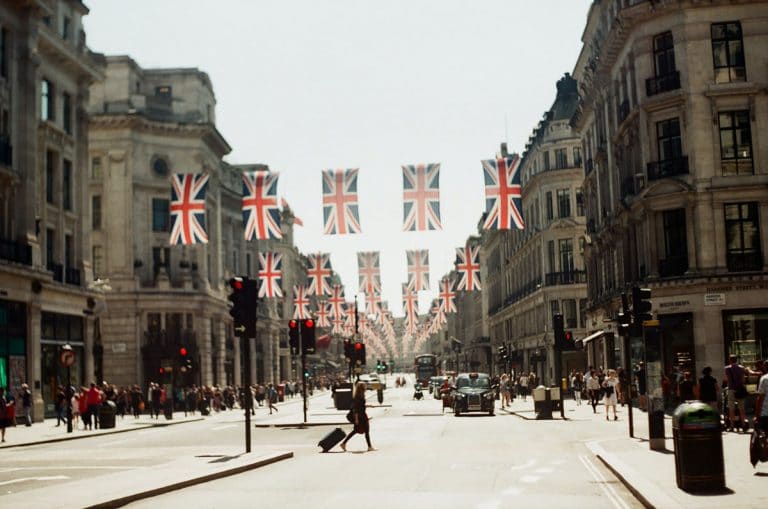Boohoo buys Debenhams and closes all its shops. What about employees?

The repercussive destruction that the COVID-19 global pandemic has induced includes—among countless other heartbreaks—multiple big businesses as well as independent shops closing, taking hundreds of jobs down with them. Debenhams for one, is set to be bought by online fashion giant Boohoo. Why is Boohoo buying Debenhams, and what is expected to happen next?
Boohoo has bought Debenhams for £55 million, and will be relaunching the department store as, just like itself, an online only operation, leaving ten to 12,000 Debenhams staff unemployed.
What’s in it for Boohoo?
According to The Telegraph, Boohoo has stated that the deal would allow it to move into categories it hadn’t yet tapped into within the fashion retail market, such as beauty, sport and homeware. Boohoo’s chief executive John Lyttle has said that “The acquisition represents an exciting strategic opportunity to transform our target addressable market through the creation of an online marketplace that leverages Debenhams’ high brand awareness and traffic through the development of beauty and fashion partnerships connecting brands with consumers.”
Due to the global lockdown, online shopping has taken the lead over brick and mortar trading due to the closing of most locations. Online shopping is expected to become even more of a normality after the pandemic has, hopefully soon, passed.
Boohoo has announced that it had acquired all of the intellectual property assets, including customer data, related business information and contracts from Debenhams’ administrators, which has inevitably closed all of the previous Debenhams stores in Britain permanently as part of the sale.
Geoff Rowley, joint administrator and partner of FRP Advisory publicly announced he expected “that the agreement with Boohoo may provide some job opportunities but we regret that this outcome does not safeguard the jobs of Debenhams’ employees beyond the winding down period.”
The BBC reported that Mahmud Kamani, Boohoo’s executive chairman, stated that “This is a transformational deal for the group, which allows us to capture the fantastic opportunity as e-commerce continues to grow. Our ambition is to create the UK’s largest marketplace.”
After a rough year for Boohoo, having faced accusations of widespread abuse of employment law at some of Boohoo’s suppliers in Leicester, as well as questions regarding the environmental impact of its fast fashion business model, Kamani stated that the firm was working to fix those problems in saying that “We will make a better Boohoo.” Acquiring Debenhams seems to be the first part of that plan, although right now it looks like it may just be a spreading of wings for wealth. But that’s just my opinion. So, what’s going to happen to Debenhams now?
What’s going to happen to Debenhams?
Founded in 1778 as a draper’s shop, by 1950 Debenhams had become the UK’s largest department store, and by 1985 it had merged to become part of the Burton Group, which soon rebranded as Arcadia. Then in 2003 the retailer was bought by a multitude of private equity firms who also introduced the company to £1.2 billion worth of debt, which led the new owners to sell off its freehold property, then floated it on the stock exchange.
The rise of fast fashion budget retailers pushed Debenhams even further into a struggling corner, and various events eventually collapsed it into administration in 2019, then again in 2020 when the company confirmed it would be going into liquidation without a buyer. Having really been put through the ringer, it may be getting a new lease at life.
Boohoo has stated that Debenhams is expected to relaunch on Boohoo’s web platform later this year, in 2021, but until then it’s all about winding down the business, and closing all of the stores. That being said, the store will continue to operate its website for an agreed, but yet to be stated, period. The administrators of Debenhams UK have said that they had undertaken a “thorough and robust process” to achieve the “best outcome for Debehnams’ stakeholders.”
Debenhams own fashion brands will be absorbed into Boohoo’s portfolio and sold via the Debenhams website, and from there we will see what happens next. This isn’t the first time the online retailer has bought well-known high street brands out of administration, it did so previously with Oasis, Coast and Karen Millen to name a few. The acquisition will be funded by Boohoo’s existing cash reserves, and although no Debenhams stock or stores are included, if all goes to plan, Boohoo will inherit about 6 million shoppers.
Parallel to all of this going on, ASOS, another solely online fashion retailer, has confirmed that it is in talks to buy Topshop, Topman, Miss Selfridge and HIIT brands from the collapsed Arcadia empire. Is this the beginning of the end for the British high street as we knew it? It certainly looks like it.




